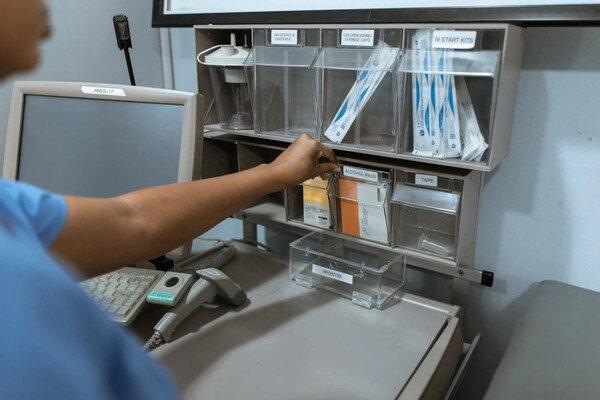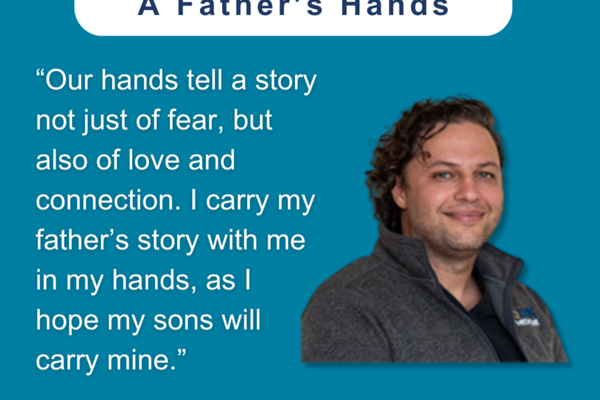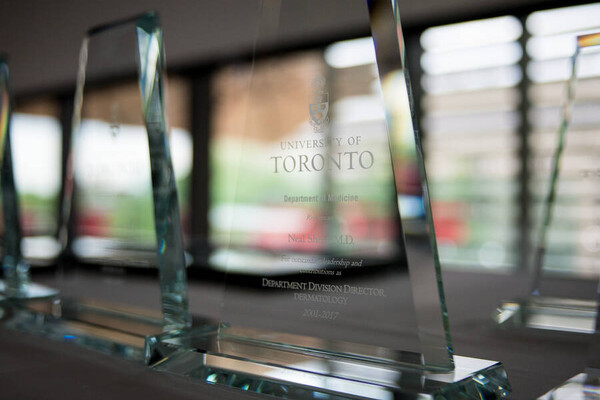Main Second Level Navigation
- Welcome
- Why Toronto?
- History of the Department
- Vision & Strategic Priorities
- Our Leadership
- Our Support Staff
- Location & Contact
- Departmental Committees
- Department of Medicine Prizes & Awards
- Department of Medicine Resident Awards
- Department of Medicine: Self-Study Report (2013 - 2018)
- Department of Medicine: Self-Study Report (2018 - 2023)
- Communication Resources
- News
- Events
The human side of the pandemic: Faces of COVID series features the stories of frontline workers
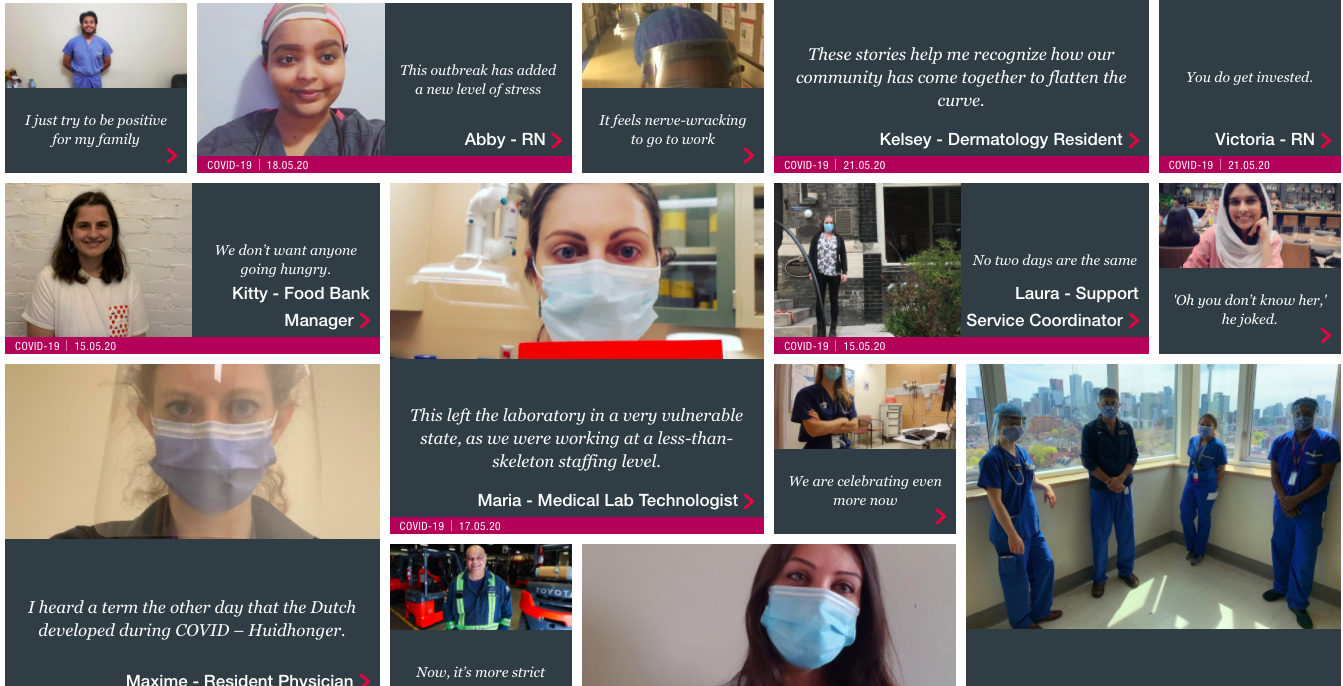
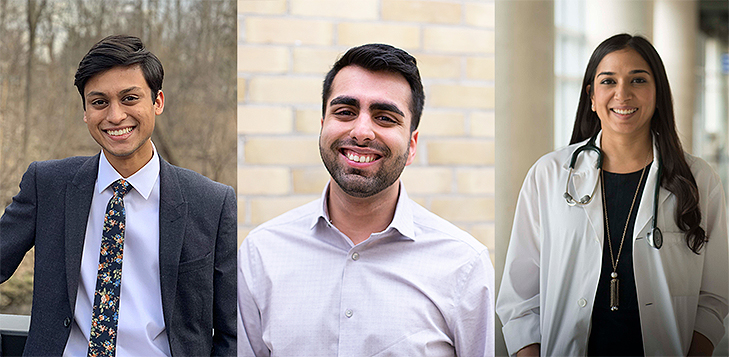 As the world journeys through the COVID-19 pandemic, the dips and spikes in the number of cases each day has come front and centre in how the pandemic is understood. But according to Dr. Arnav Agarwal and Rishi Bansal, what is missing from these reports are the lived experiences of the people whose jobs are taking them to the frontlines of the pandemic every day.
As the world journeys through the COVID-19 pandemic, the dips and spikes in the number of cases each day has come front and centre in how the pandemic is understood. But according to Dr. Arnav Agarwal and Rishi Bansal, what is missing from these reports are the lived experiences of the people whose jobs are taking them to the frontlines of the pandemic every day.
Agarwal and Bansal are part of a group of Department of Medicine physicians and volunteers who are sharing stories from the frontlines of the COVID-19 pandemic in the recently launched Faces of COVID series.
Inspired by the microblog Humans of New York and Healthy Debate’s Faces of Health Care, Faces of COVID captures the stories and experiences of the people who are working on the frontlines and in essential workplaces, both in and out of healthcare.
According to the series’ founders - Agarwal, an internal medicine resident in the Department of Medicine, Bansal, a McMaster University student, and Dr. Seema Marwaha, an assistant professor in the Department of Medicine and general internist at St. Michael’s Hospital - it’s a platform to showcase frontline workers and to promote a sense of community and connection among people who are working on the frontlines and those who are not.
“You realize that we are seeing what the frontlines look like, but so many people who are sitting at home and are told to be patient, they can't necessarily see and hear why,” says Marwaha, who is also editor-in-chief of Healthy Debate, where the series is posted. “We thought that this could be that representation for them.”
The stories, sourced through a mix of interviews, curated social media content and submitted pieces, draw from doctors, nurses, janitorial staff, grocery store workers and postal workers, among many others. Each of them, Agarwal describes, are risking their lives by going to work every day to help people and keep communities functioning.
“They are going through once-in-a-lifetime experiences in order to do what they do every day,” he says. “We recognized that there needed to be a place to collect these stories and share them, both for the public to have a window into what these experiences look like, and for the people who are going through these experiences, because they deserve to be heard.”
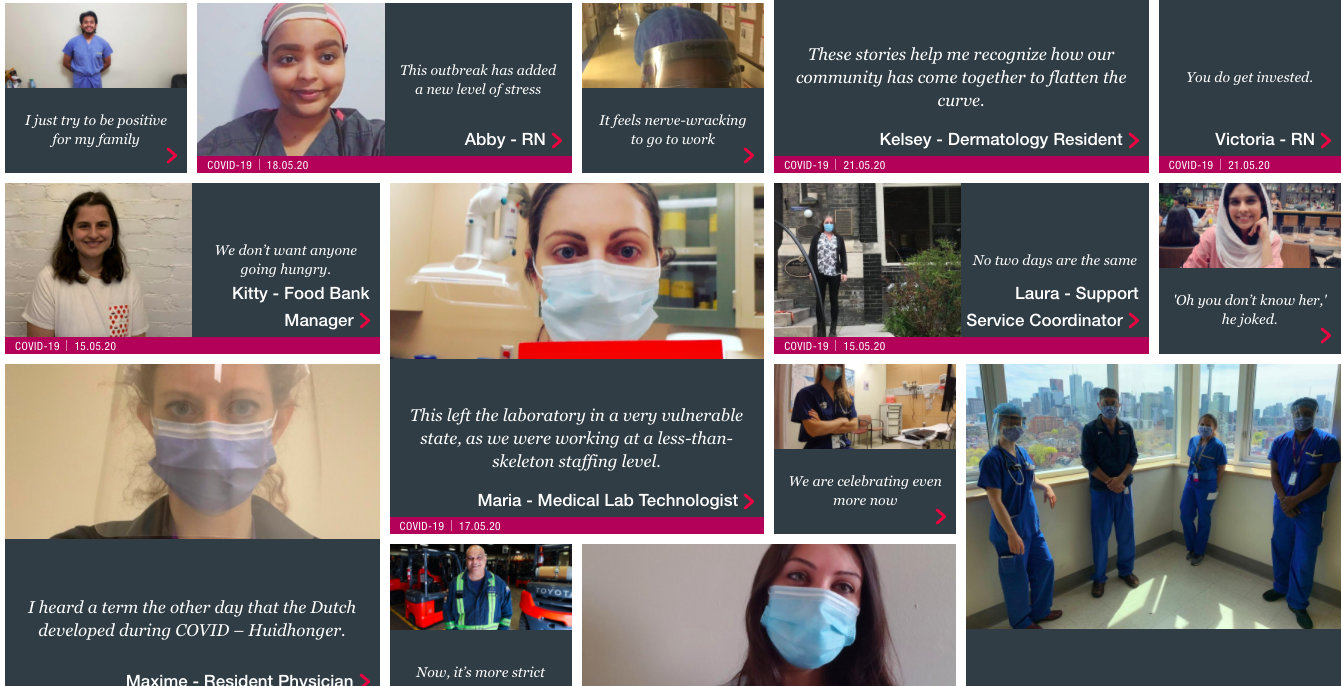 Each post to Faces of COVID is a brief snapshot that showcases the humanity amid the pandemic through the everyday experiences of frontline and essential workers. Their experiences extend to living away from their families during the pandemic, adapting to new ways of doing their jobs, fears and anxieties around the virus and also optimism and hope.
Each post to Faces of COVID is a brief snapshot that showcases the humanity amid the pandemic through the everyday experiences of frontline and essential workers. Their experiences extend to living away from their families during the pandemic, adapting to new ways of doing their jobs, fears and anxieties around the virus and also optimism and hope.
“It’s a mosaic,” says Agarwal. “We're capturing stories that are very much part of the same puzzle, but look very different, and when you piece them together you get this beautiful overall perspective of what people are experiencing.”
For Bansal, the sense of optimism that is present in many of the stories is what has stood out for him and is a message that he hopes the series is able to communicate.
“Whether it's in the hospital or the community, no matter where they are, almost every single person that I've talked to has left their interview on an uplifting and positive note,” he says. “People speak about hard experiences, but say, ‘it's really uplifting that we're able to help.’ It's really positive that you can see in these tough times that people are able to come together.”
The group is posting about five to seven stories per week and has more than 100 currently published. The stories are collected by a team of 10 volunteers made up of mostly Department of Medicine residents and faculty, as well as students. As they collect more and more interviews, in the long term, the group hopes that the project will document changing perspectives and serve as an archive of what it was like to live through COVID-19.
“Since this project started, more people have come forward to talk about their SARS experience from 17 years ago,” Marwaha says. She explains that although SARS was thoroughly documented through data and research, the knowledge of what it was like to live through that pandemic, particularly in Toronto, was not necessarily passed down to younger generations. It’s a gap that Marwaha is hopeful that Faces of COVID can fill for the current pandemic.
“Thinking a few years ahead, this will be a really interesting record of what people went through and how they described it in their own words.”
For now, Agarwal, Bansal and Marwaha hope that Faces of COVID helps people recognize the many different people who are on the frontlines of the pandemic.
“When people are banging their pots and pans outside, don't just think of doctors and nurses,” Marwaha says. “Think of the faces as a whole. It is a diverse group of people who leave their house every day so the world can continue to function.”
Other members of the Faces of COVID team include Sahil Gupta, Nikita Singh, Yifan Yang, Mollie Sivaram, Anika Andal, and Gemma Donn. To share your story with Faces of COVID, email contactus@healthydebate.ca or message them on Twitter @healthydebate.

